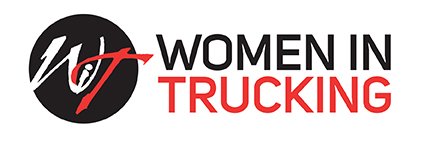
Women In Trucking Association publishes whitepaper on addressing Gender Bias and Harassment toward professional drivers
The Women In Trucking Association (WIT) has published a new whitepaper, “Addressing Gender Bias and Harassment in the Trucking Industry.” Gender bias and harassment have been primary concerns of current and prospective female professional drivers and deserve all stakeholders’ time and attention.
While a majority of respondents (55 percent) indicated that the trucking industry overall is a safe one for women to be employed within, many report instances of being the recipient of verbally offensive comments or verbal threats within the last five years:
- In fact, 56 percent of drivers report they have been the recipient of verbally offensive comments more than once, while another 13 percent report it has happened to them earlier. Approximately 29 percent of respondents say they have not been on the receiving end of verbally offensive comments.
- In addition, approximately 28 percent say they have received verbal threats more than once and another 21 percent say it has happened to them once. Approximately 49 percent said they have not ever received a verbal threat on the job.
Another area of concern by drivers responding to the survey is that they have either been the victim of unwanted physical advances or rape within the last five years:
- In fact, 39 percent of respondents say they have been the recipient of an unwanted physical advance more than once, and another 18 percent say they have experienced this one time on the job. Approximately 41 percent say they have not been the victim of an unwanted physical advance.
- Approximately four percent of respondents say have experienced rape while another two percent say they experienced rape more than once. Another six percent did not wish to answer.
More than 37 percent of respondents reported their company either not having a harassment policy or being unsure of whether their company has one. “The Women In Trucking Association is dedicated to encouraging companies to create a safer work environment for women in our industry,” said Ellen Voie, president and CEO of WIT. There are a number of corporate policy recommendations on gender bias and harassment that Voie recommends:
- Implement and enforce workplace harassment policies specifically outlining what is and isn’t tolerated in the workplace and what consequences will come from violating the policy. All gender bias and harassment policies also should guarantee that employees who report gender bias and/or harassment won’t suffer adverse job consequences. These policies should be communicated to employees routinely, not just during initial training.
- Implement same-gender training programs, as driving training often requires spending long periods with a member of the opposite gender, and is a top area where gender bias and harassment are perpetuated.
- Employ more women in management roles, as company leadership staff that includes appropriate gender representation of its employee base is far more equipped to understand, address, and correct the many ways gender bias and harassment persist in the workplace.
This whitepaper is the second of a series focused on safety and harassment issues for women in the transportation industry. To download a copy of the whitepaper, click here: https://www.womenintrucking.









